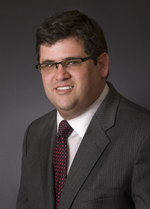When someone does an offender search on TDCJ they will see three dates relevant to when an offender can be released. There is the Maximum Sentence Date, the Parole Eligibility Date, and the Projected Release Date. The Projected Release Date causes the greatest amount of confusion so I will explain what it means.
The projected release date can mean different things for an offender depending on when the offense was committed and the type of offense.
- If the offender is not eligible for mandatory supervision because of the type of offense then the projected release date will be the same as their maximum sentence date. For example, if an offender were convicted of aggravated robbery and sentenced to ten years both the projected release date and maximum sentence date would be calculated by determining when the offender had served ten years.
- If the offense was committed prior to September of 1996 and is eligible for mandatory supervision the date is their scheduled release to mandatory supervision and the offender will be released on that date. The date is obtained by calculating when their calendar time plus good time equal the length of the sentence.
- If the offender committed the offense after September 1, 1996 and is eligible for mandatory supervision the projected release date will be the date when their calendar time plus good time is equal to the length of the sentence. However, unlike those in category two the parole board may vote to deny release on mandatory supervision. If the board denies release this date will be recalculated.
It should be noted that in each of these instances offenders will be eligible for parole prior to the projected release date. If you have questions regarding a projected release date please call us at 713-651-1444. If you have questions about how you can help someone who is approaching the projected release date or parole eligibility date please call us or fill out an online contact form for a free consultation. Our office is located in Houston and our parole practice takes us across the State of Texas. We represent offenders from Dallas, Houston, Fort Worth, Austin, San Antonio, McAllen and other cities across Texas.

